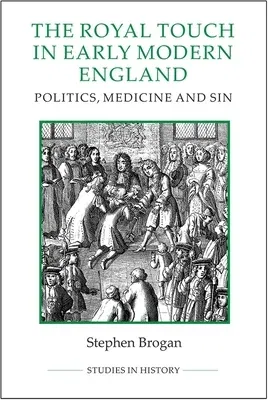Stephen Brogan
(Author)The Royal Touch in Early Modern England: Politics, Medicine and SinPaperback, 21 February 2020

Qty
1
Turbo
Ships in 2 - 3 days
In Stock
Free Delivery
Cash on Delivery
15 Days
Free Returns
Secure Checkout

Part of Series
Royal Historical Society Studies in History New
Print Length
277 pages
Language
English
Publisher
Royal Historical Society
Date Published
21 Feb 2020
ISBN-10
0861933524
ISBN-13
9780861933525
Description
Product Details
Author:
Book Format:
Paperback
Country of Origin:
GB
Date Published:
21 February 2020
Dimensions:
23.39 x
15.6 x
1.52 cm
ISBN-10:
0861933524
ISBN-13:
9780861933525
Language:
English
Location:
Woodbridge
Pages:
277
Publisher:
Weight:
403.7 gm